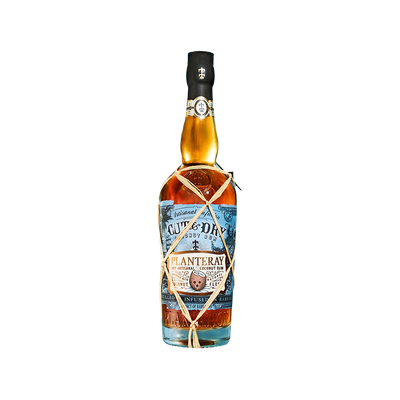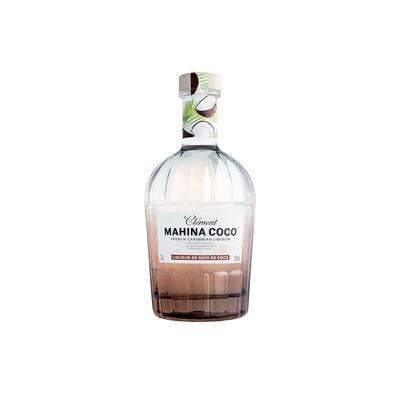Coconut Flavored Rum
What is Coconut Flavored Rum?
Coconut flavored rum is a specific type of flavored rum that combines traditional rum with natural or artificial coconut flavoring to create a tropical spirit perfect for beach-inspired cocktails. This sweet, creamy spirit typically starts with a white or light rum base, then gets infused with coconut extracts, coconut cream, or actual coconut during production. The defining characteristic of coconut rum is its rich, smooth coconut taste that instantly transports you to a hammock between palm trees, making it an essential ingredient for piña coladas and other vacation-style drinks.
Learn More About Coconut Flavored Rum
What makes Coconut Flavored Rum unique?
Coconut flavored rum stands apart from other flavored rums through its ability to instantly transport you to tropical paradise with its rich, creamy sweetness that perfectly complements rum's natural sugarcane origins. While fruit-flavored rums like mango or pineapple add bright, acidic notes, coconut brings a luxurious, almost dessert-like quality that makes it incredibly versatile for both sipping neat and mixing into creamy cocktails like piña coladas. The coconut's natural oils and milk create a smoother, more rounded mouthfeel compared to the sharper profiles found in spiced or citrus-infused rums.
How is Coconut Flavored Rum made?
Coconut flavored rum starts with a base of white or aged rum, which producers then infuse with natural coconut extracts, coconut cream, or actual coconut meat during a steeping process that can last several weeks. Some distilleries take a different approach by redistilling their rum with fresh coconut, allowing the vapors to carry those tropical oils and flavors directly into the spirit. The final step typically involves filtering and sometimes adding a touch of sugar or natural coconut essence to round out the flavor profile and achieve the desired sweetness level.
How do you drink Coconut Flavored Rum?
Coconut flavored rum shines brightest in tropical cocktails like piña coladas, daiquiris, and rum punches, where its sweet, creamy notes blend perfectly with fruit juices and mixers. While some folks enjoy it over ice or mixed with simple cola, it's rarely sipped neat due to its sweetness and lower proof. These sunny cocktails are perfect for summer pool parties, beach vacations, and any time you want to transport yourself to a tropical paradise – though they work equally well for warming up cold winter nights when you're dreaming of warmer days.
How do I choose good Coconut Flavored Rum?
When selecting coconut rum, read the label carefully to distinguish between naturally flavored options and those loaded with artificial additives—brands like Malibu offer accessibility but often lean heavily sweet, while premium producers like Plantation or Koloa create more balanced expressions with real coconut. Your cocktail choice should guide your selection: lighter, sweeter coconut rums work beautifully in tropical drinks like piña coladas where you want that dessert-like quality, but if you're mixing into a rum punch or mai tai, opt for a coconut rum with more authentic rum character that won't disappear behind other ingredients. For sipping neat or on the rocks, invest in a higher-proof coconut rum that maintains the spirit's backbone while adding that tropical flair.
Nutritional Information
Typical Calorie Range per Ounce: 65-80 calories
Typical Carbohydrate Range per Ounce: 1-3 grams
Typical Sugar Range per Ounce: 1-3 grams
Typically Gluten Free: Yes
Most coconut flavored rums are naturally gluten-free since they're distilled from sugarcane or molasses rather than gluten-containing grains. The coconut flavoring typically comes from natural coconut extracts or artificial flavoring agents that don't contain gluten. That said, always check the detailed product information on the bottle or manufacturer's website to confirm gluten-free status, especially if you have celiac disease or severe gluten sensitivity. Some brands may use additives or processing methods that could introduce gluten contamination.
Scrolled this far? Your reward? Coconut Flavored Rum Trivia!
- The first coconut rum wasn't actually made with coconuts at all. Early Caribbean distillers created coconut-flavored spirits by aging rum in charred coconut husks, which imparted a naturally sweet, nutty flavor without using any coconut meat or milk. This technique predates modern flavoring methods by over 200 years and explains why some premium coconut rums still have that smoky undertone.
- Coconut rum contains natural enzymes that can actually help break down the lactose in cream-based cocktails. This is why a Piña Colada made with real coconut rum often tastes smoother and less heavy than one made with regular rum plus coconut cream. The enzymes present in coconut-derived flavoring act as natural emulsifiers, creating that perfect creamy texture without the cloying sweetness.
- Pirates used coconut rum as antiseptic for wounds during long voyages. The combination of high-proof alcohol and coconut's natural antimicrobial properties made it a dual-purpose item in their limited cargo space. Spanish colonial records from the 1600s document this practice, noting that crews with access to coconut-flavored spirits had lower rates of infection from battle wounds.
- The pH level of coconut rum changes dramatically when mixed with citrus, creating a completely different flavor profile. Fresh lime juice doesn't just add tartness—it actually triggers chemical reactions with the coconut oils that produce entirely new flavor compounds. This is why a coconut rum and lime tastes nothing like the sum of its parts, and why master bartenders insist on using fresh citrus rather than bottled juice.
- Coconut rum was originally considered a "medicinal" spirit in 18th century Europe. Wealthy Europeans paid premium prices for Caribbean coconut rum, believing it could cure everything from scurvy to depression. While the scurvy claims had some merit (thanks to trace vitamins from coconut), the real reason people felt better was simply the alcohol content and the exotic flavors that lifted their spirits during harsh winters.
Higher-proof spirits can be intense. Mix carefully, taste thoughtfully, and enjoy responsibly.
Gift message (optional)


